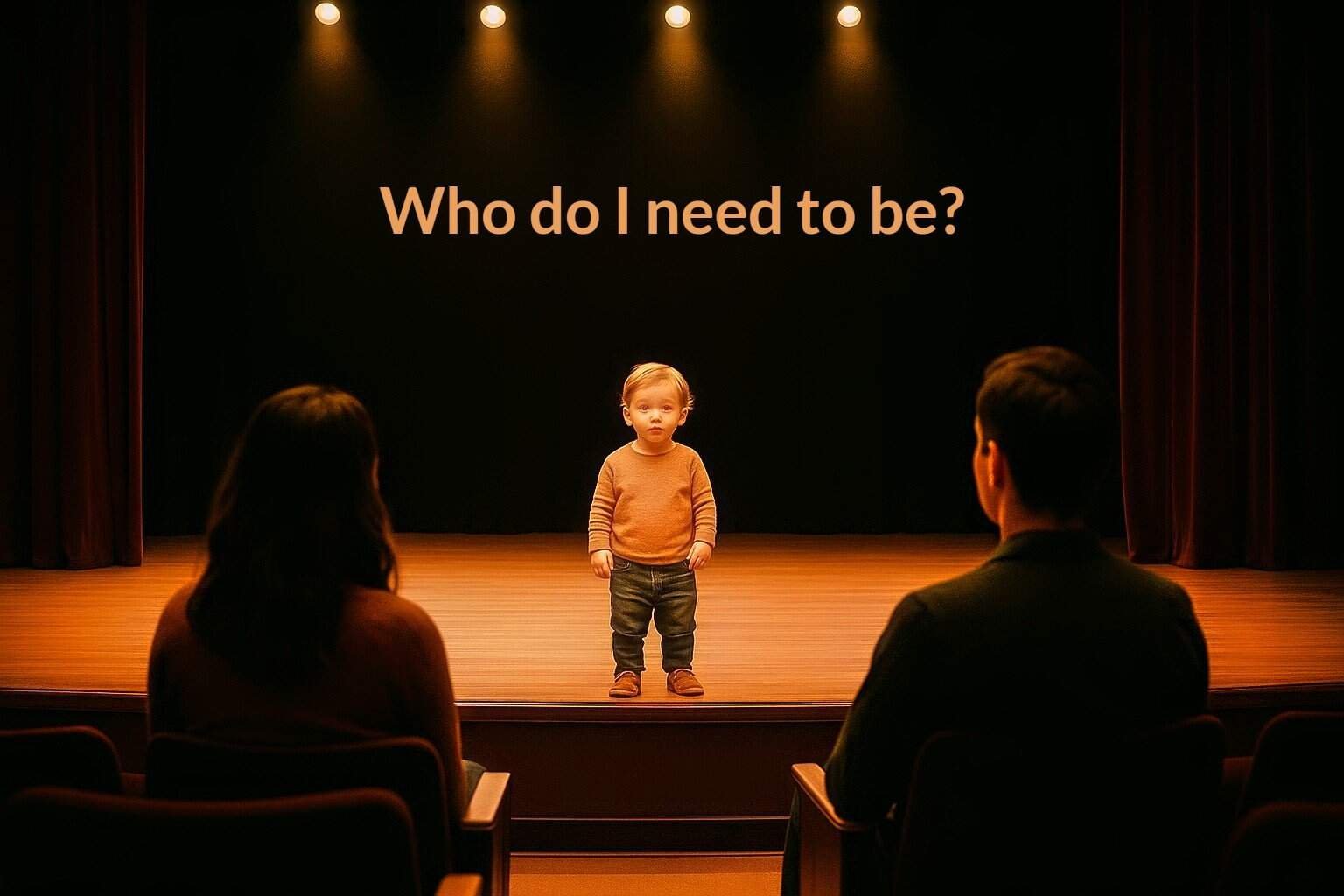Every Enneagram Type Is a Performer—And Your Child Is Watching
Children live in a world of lights, camera, action.
They feel as though the spotlight is always on them—every glance, gesture, and tone of voice from the audience they depend on for safety and belonging. That audience is you.
Picture it: a small child, standing alone on a stage. The lights are bright, the room is quiet, and two familiar figures—mother and father—sit in the front row. Every movement the child makes, every choice, is seen. Not judged with malice, but noticed. Always noticed.
From their earliest days, children begin performing. Not because they want applause, but because they are exquisitely tuned to the emotional climate of the room. They learn which expressions bring a smile, which words keep the peace, and which actions earn warmth and connection. Over time, this becomes their role.
All the world’s a stage, and all the men and women merely players. – William Shakespeare
The Parent’s Role as Performer
By the time we become parents ourselves, our role has been rehearsed for decades. We play it so well, we hardly notice it anymore. But it began the same way our child’s role is beginning now—crafted in response to the stage we grew up on.
This role, shaped by our Enneagram type, is more than a personality pattern. It is the character we learned to inhabit to secure belonging. As parents, that role becomes the emotional backdrop for our child’s stage of development. Even when we’re not aware of it, we are showing them the “rules” for what’s welcome, what gets applause, and what should be left in the wings.
From Actor to Director
Parenting requires us to hold two roles simultaneously. As actors, we continue playing the part we learned long ago, with all its familiar habits of thought, feeling, and reaction. But as directors, we have the power to step back, watch the scene, and consider:
- Is my performance giving my child permission to be fully themselves?
- Am I handing them an old script, or inviting them to write their own?
- What unspoken cues am I sending about what’s welcome and what’s not?
Your child is not just watching you—they are shaping themselves in response to what they see.
A Reflection for Parents
- Imagine your role as a character in a play. Write down three defining qualities, three core fears, and three strategies this character uses to feel safe.
- Picture your child sharing that stage. What are they learning from the way you play your part?
- Step into the director’s chair. What one small shift could you make in the next scene to give them more freedom to inhabit their own role?
The Power of Conscious Performance
Children will always feel the lights on them. The spotlight is part of their world. Our task is not to remove it, but to ensure that what they see reflected from the audience gives them the courage to stand in their own skin—without fear, without needing to perfect their lines.
I love acting. It is so much more real than life. – Oscar Wilde
The lines change. The scenes change. The costume changes. But if we are aware, the role can evolve—and in that evolution, our children can find their own voice on the stage of life.
Reflection Exercise
- Picture your role as a character on stage. Write down three defining qualities, three core fears, and three strategies this character uses to feel safe.
- Now imagine your child taking to the stage as a new actor. What do they see in your performance? How might they be adapting to match it?
- Step into the director’s chair. What one shift could you make in the next scene to give your child more freedom in their own role?
The Power of Conscious Performance
Children will always feel the lights on them. The spotlight is part of how they experience the world. Our job is not to remove it, but to make sure that what they see reflected in our eyes gives them the courage to be themselves, even when the audience is watching.
The lines change. The scenes change. The costume changes. But if we are aware, the role can evolve—and in that evolution, our children can find their own voice on the stage of life.
John Harper is a Diamond Approach teacher, Enneagram guide, and student of human development, whose work bridges psychology, spirituality, and deep experiential inquiry. He is the author of The Enneagram World of the Child: Nurturing Resilience and Self-Compassion in Early Life and Good Vibrations: Primordial Sounds of Existence, available on Amazon.
